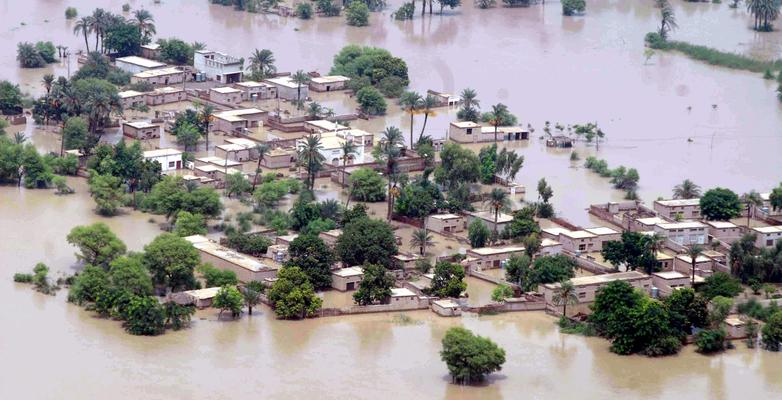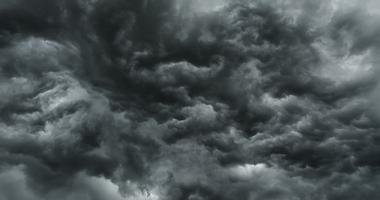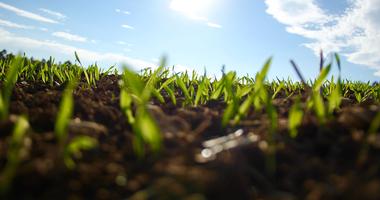
Flooding In Pakistan: A Climate Disaster That Keeps Unfolding
By Eman Nazir
The sermons in the mosques aren’t heard during fajr anymore, only the cries of 1 million families struggling to keep their homes intact. The monsoon rains drench the streets in Sindh while the ice-glaciers are losing their way home. These floods are familiar to the Pakistani soil, but millions of people are today met with the unfamiliarity of losing their beautiful homes.
The 2022 floods — one of the worst the country has witnessed — remind me of the 2010 floods I witnessed as a child, in Pakistan. I recall this disastrous natural emergency shaking my home country to the core. But 12 years later, we witness the unthinkable and yet are met with sheer indifference.
A Climate Disaster
In June 2022, Pakistan was drenched by extreme monsoon rains, leading the nation to declare a state of emergency. The devastating floods inundated hundreds of villages, and have transformed the majority of the agricultural farmland in Sindh into large, shallow lakes. Over 1,500 people have died, nearly half of whom were children. More than 33 million people have been displaced from their homes, and over 1 million houses have been destroyed or damaged.
Pakistan is home to the largest amount of glacial ice found outside the polar regions. The impact of such heavy monsoon rains has been compounded by the continued melting of Pakistan's 7,000 glaciers. Climate warming and extreme heat waves have resulted in numerous glacial outburst floods as well.
The floods in Pakistan are unfortunately only one of the climate disasters that have taken place amid a recent string of shocking weather extremes across the Northern Hemisphere. Relentless droughts in Eastern Africa, China, and Mexico. Flash floods in West and Central Africa, Iran, and the United States. Heatwaves in India, Japan, California, and Europe.
We are walking into an age where the impacts of climate change across the world are only becoming more profound and disastrous. The floods in Pakistan demonstrate the progress that still needs to be made, and how despite these observable horrors, the global community continues to meet such climate disasters with little more than a shrug.
Climate Scientists Warned Us
Climate scientists have been warning the global community for decades that as we continue to pump more greenhouse gasses into our atmosphere, extreme weather events will only continue to become more frequent and intense.
Recently a scientific analysis was conducted by a group of international climate scientists in Pakistan, Europe, and the United States. This analysis was able to establish a correlation between climate change and its role in exacerbating the deadly floods in Pakistan.
This study followed a “attribution-study mechanism”; this is a type of research that is carried out at a much more urgent pace than most climate studies. It aims to offer policymakers and disaster survivors an approximation of the correlation and connection between a specific weather event and climate change. Although, much more in-depth research is underway- and is crucially needed- to better understand the different ways in which climate change impacts monsoon rainfall.
This study highlighted that despite Pakistan being historically prone to heavy monsoon seasons, now more water is falling during weeks when monsoon rains are the heaviest.
As the earth's temperatures continue to rise, we know that intense rain will follow. The climate models used under this analysis suggest that monsoon rains will and are becoming even less reliable. In other words, cycles of both flooding and droughts in Pakistan and its neighboring countries will likely become more frequent in the future.
A Second Disaster Is Underway
Unfortunately, the story of flooding in Pakistan does not end here, rather this climate disaster is also laying the groundwork for yet another disaster - a health crisis.
The damages of such disastrous flooding do not recede with the waters. Hundreds of thousands of people in Pakistan now have no option but to live in the open.
Flood water will start to recede over the course of the next few months; however, this stagnant water results in its own crisis. Stagnant waters lead to the rise in waterborne diseases: cases of Malaria, Dengue, and skin diseases have already begun to climb.
Pakistan is already witnessing a nation-level disease outbreak. Millions of people have no option but to use unsafe water both for their daily needs and to drink. Hundreds of thousands have been treated for waterborne diseases since July 1, 2022. This influx has greatly overwhelmed Pakistan's already fragile health system.
During a time like this, where Pakistan is not only enduring the ravaging impacts of flooding but also dire health impacts today and for years to come, it is crucial that the international community, government agencies, and nonprofits all across the world join hands to provide aid, food, safe drinking water, and healthcare facilities to the victims of this catastrophic disaster.
How Can You Help?
The United Nations World Food Program delivers lifesaving emergency food within 72 hours to people who have lost everything. Donations to UN WFP help families in places like Pakistan to receive the critical food they need to survive. Donate Here
The United Nations Refugee Agency is already on the ground providing tens of thousands of refugees, displaced people, and host communities in the worst hit areas of Pakistan's Baluchistan and Khyber Pakhtunkhwa provinces with emergency shelter and relief items. To help support their efforts you can directly donate to the UNHCR. Donate Here
CARE is distributing relief items to flood-affected communities, including tents, tarpaulins, menstrual hygiene items, and emergency latrine kits. Donate Here
The floods in Pakistan reveal exactly what can happen when we don’t treat climate change with the immediacy it deserves. Millions of people are suffering its impacts right now. We must act!




